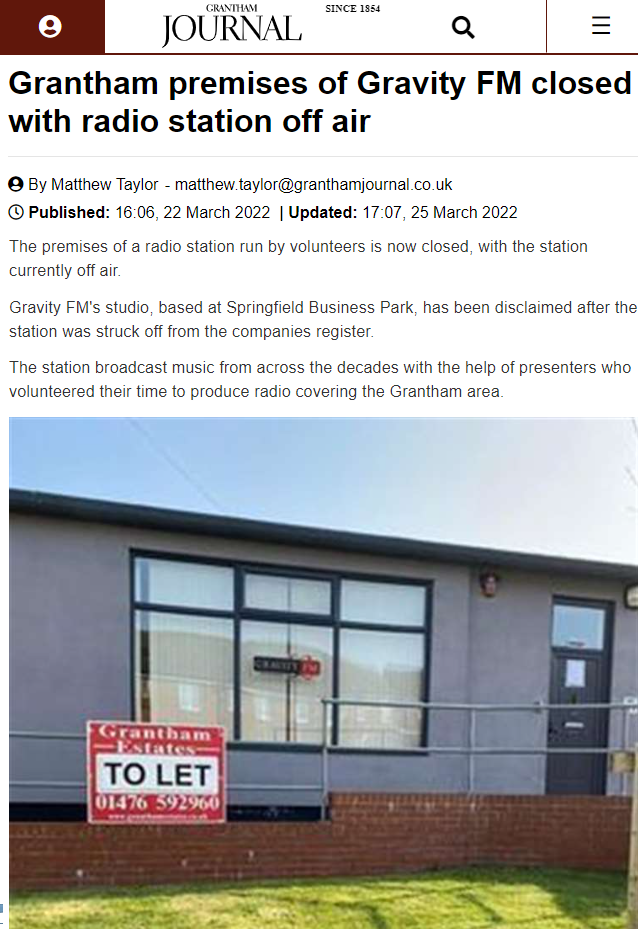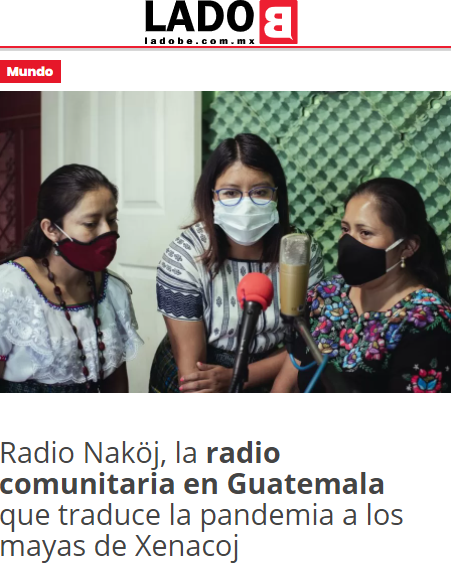
Source
All that was missing was an earthquake and locusts (John Belushi in The Blues Brothers): what happened to Gravity FM is textbook for the flurry of bad luck that forced it to close. The staff of the station, which had been on air since December 2008 on 97.2 MHz in Grantham (Margareth Thatcher’s hometown, a town of 35,000 inhabitants 40 km from Nottingham), recounts this on its Facebook page. Gravity is a community station, it advertises, but it has been in bad shape for some time and another company was formed to take it over. But in the transfer of the licence something goes wrong: the UK’s airwaves regulator, Ofcom, makes a mistake. That forces the station to take a long and expensive legal route to get it corrected.
Covid-19 arrives…

Source
It’s November 2019. Two months later the pandemic breaks out. On 23 March 2020, the first lockdown is decreed in the UK: within a few weeks, advertisers suspend advertising campaigns. The station’s revenues plummet by 70 per cent, but the radio station cannot suspend broadcasts, temporarily shutting down as companies do. It performs a public service and the law obliges it not to interrupt it, even if it is forced to work at a loss (the state subsidies are not enough to get it back on its feet). However, the legal process is still long: it ends in November 2020.
…and they also cut the power

Source
As if that weren’t enough (it’s April 2021), the radio station learns that the Malting, the old malting factory in the town that houses the transmitter and antennas on its roof (52 metres high), is being decommissioned. The frantic search for an alternative begins: lighting the city is not easy, due to orography problems. And then the regulations on transmitter sites have recently changed: there is uncertainty and building owners do not feel up to hosting new antennas. In January 2022 comes the warning that the power cut is scheduled for the end of February. The last days of the search are feverish. But the contractors get on with the job and… remove the power cables weeks in advance, shutting down the signal. Radio throws in the towel. (Written by Fabrizio Carnevalini)


